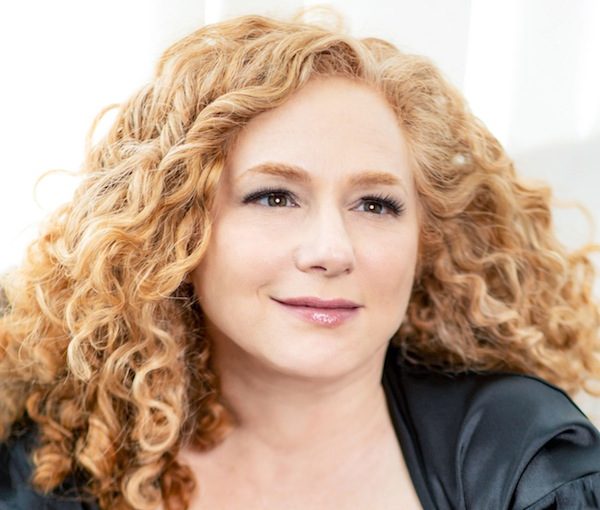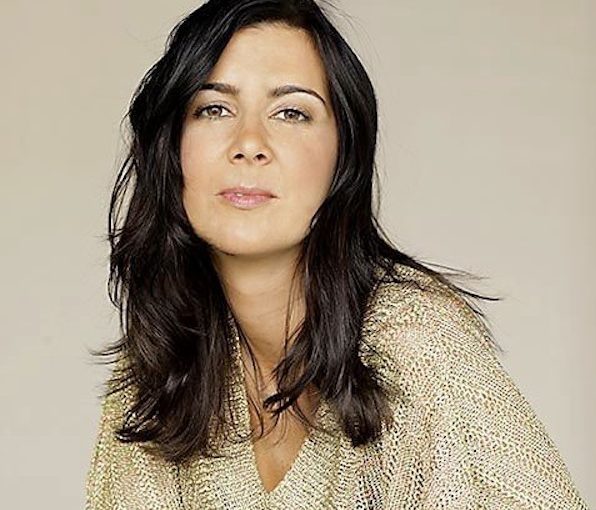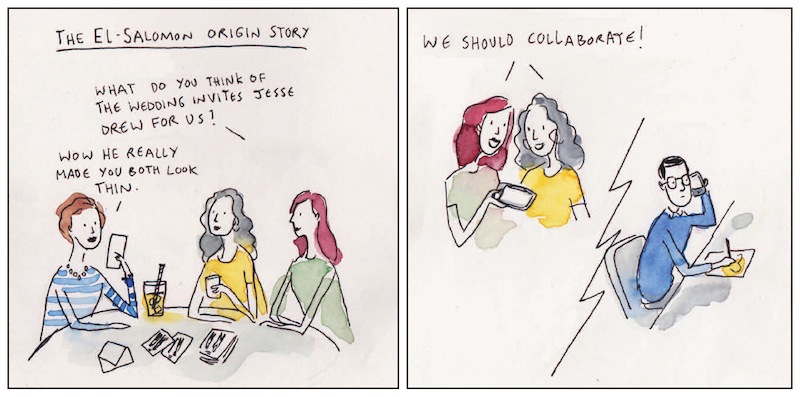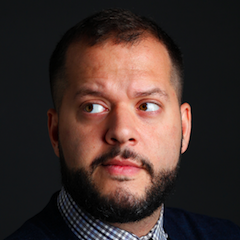The new artistic managing director of Chutzpah!, Jessica Mann Gutteridge, faced unique challenges in presenting the festival. (photo from Chutzpah!)
“This has been a challenging time for all communities. I hope that this year’s Chutzpah! Festival can bring a sense of joy, and the communal spirit that comes from sharing performing arts experiences with others, whether at the theatre or from the comfort of home,” said artistic managing director Jessica Mann Gutteridge in a recent interview with the Jewish Independent.
This will be the first-ever Chutzpah! The Lisa Nemetz International Jewish Performing Arts Festival that people will be able to watch at home. Given the COVID-19 pandemic, all of the performances will be available online, Nov. 21-28, with a few opportunities to attend small-audience shows that are being live-streamed from the Norman and Annette Rothstein Theatre. Not only will this be the first Chutzpah! presented digitally in the festival’s 20-year history, but it will be the first directed by Gutteridge.
“I knew that I had an exciting and challenging year ahead of me when I took the helm of Chutzpah! from Mary-Louise Albert, who was artistic director before me for 15 years,” said Gutteridge. “I really could not have anticipated how much the world would change just three weeks later, when the pandemic shuttered the Rothstein Theatre and the entire performing arts sector. The first month or so was spent focusing on our staff’s well-being and helping the many users of our theatre to reschedule and replan all the events that had to be canceled.
“The first thing I did for the Chutzpah! Festival was to take some time to think,” she said. “My board was wonderfully supportive from Day 1 and assured me that whatever scale I felt was right would be all right with them – even if I wanted to postpone for a year. I spent a great deal of time just thinking about the purposes of the festival, how it serves the community and the relationships we have with our audiences and community of artists. Even before COVID, when I was thinking about what my first festival might look like in a transition time, I felt inspired to bring together artists who had performed in the festival in the past with new artists who I hoped would join us in the future. So, I began by reaching out to artists from both groups so that we could just start to get to know each other, and find out how everyone was responding to this unprecedented situation.”
By early summer, said Gutteridge, it became clear that the health-related restrictions with respect to the pandemic would still be in place in November, “so I began to think about how we might incorporate digital presentations into the festival, and to talk to artists who were exploring this form of performance in their work.
“I was thrilled to learn that Iris Bahr, who was in the 2019 festival, is not only a brilliant actor and stand-up comic, but is also a podcaster who interviews other artists and public intellectuals with much wit and insight. I invited her to perform her solo stand-up, but also to function as our festival host and conduct live interviews with all the festival artists,” said Gutteridge. “Because Iris divides her time between Israel, New York and Los Angeles, we knew she would have to appear digitally and, though this adds another layer of technical complexity, I think it’s such a special opportunity that the present moment brings us – to join artists from across the world and have a chance to learn more about how the pandemic is changing and shaping their creative work.”
The festival’s online-only shows will include Bahr’s stand-up comedy performance (click here for story); New York-based playwright Rokhl Kafrissen’s Shtumer Shabes (Silent Sabbath) and former Vancouverite-current Londoner (England) Tamara Micner’s Old Friends, both of which are works-in-progress; a concert by Israeli pianist and composer Guy Mintus; and Israeli choreographer Ella Rothschild’s Pigulim.
There will be two shows live-streamed from the Rothstein, where limited audiences will be permitted. Ben Caplan will perform music from Old Stock, which is adapted from his music-theatre piece Old Stock: A Refugee Love Story (see jewishindependent.ca/searching-for-a-safe-harbour). And Chutzpah! artist-in-residence Idan Cohen (Ne. Sans opera and dance) presents the world première of Hourglass. Closing out the festival are Jess Salomon and Eman El-Husseini (click here for story), who will be live-streaming from Brooklyn, joined by yet-to-be-announced local comedians performing at the Rothstein.
The lineup is a fraction of what it would have been if not for COVID, but Gutteridge thought it important to proceed with the event.
“Well, for starters, I’m stubborn and I like a challenge!” she said of the decision. “I also knew that we were well-positioned with staff and support to execute a creative and fulfilling festival, even though it would not look much like past festivals. In talking to colleagues inside and outside the JCC, and hearing from our community via a survey in July, I understood that there was a lot of enthusiasm to keep experiencing the kind of performing arts presentations that Chutzpah! has offered for 20 years now. And, looking ahead to dark November nights, I think we can offer a communal experience that will bring some much-needed joy.”
In addition to focusing on quality entertainment, health and safety has been at the forefront of the planning.
“We have worked carefully with health and performing arts sector experts to make sure that we are providing the safest possible experiences for audiences, staff and artists, including at our physically distanced, intimate live events at the Rothstein Theatre,” said Gutteridge. “I’m also very impressed by how our artists have risen to the challenge. Rokhl Kafrissen, the playwright of Shtumer Shabes, has been working with her cast via Zoom since April, when they presented a workshop of the play in lieu of the debut performance they were scheduled to have at LABA in New York. Our audiences will have a chance to meet the artists and see excerpts from the play, with context about the work’s meaning and creation, all performed from the artists’ individual locations. It’s a special opportunity for our audiences to peek inside the creative process.
“Idan Cohen’s Hourglass, a new dance piece with live piano accompaniment, is being created this fall at the Rothstein Theatre as part of our creative residency program. With 318 seats and a large stage, the theatre is large enough for physical distancing, and Idan is working with a skeleton crew – often just himself and the two dancers at work. The dancers, Brandon Lee Alley and Racheal Prince, are partners offstage as well as on, so they are already in a household bubble. The other dance piece, Ella Rothschild’s Pigulim, comes to us from the Suzanne Dellal Centre in Tel Aviv, where the performance was previously recorded in a studio theatre, so that health and safety protocols could be observed and the dancers could form their own bubble.”
Tickets for the festival start at $18 and are available online at chutzpahfestival.com or by phone at 604-257-5145.






